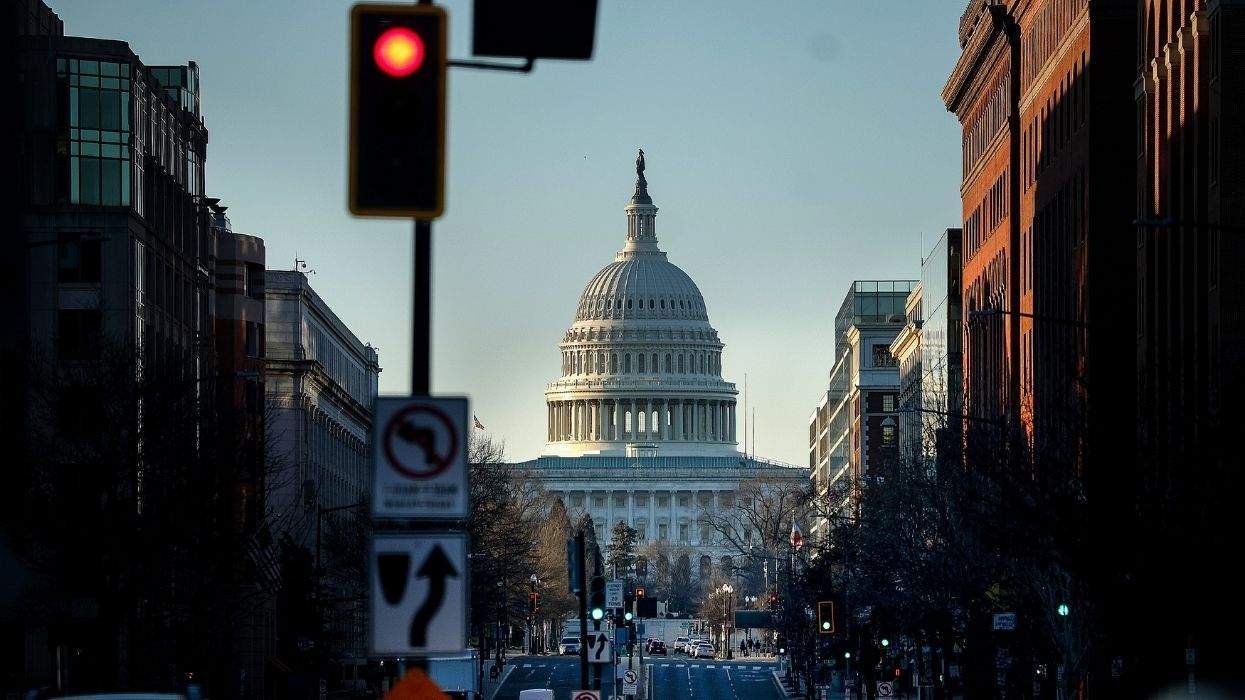Note: This commentary, published under the pseudonym Erin Ford, is written by a West Point graduate now serving in the U.S. Army. She is also a member of OutServe, an advocacy network of active-duty LGBT service members.
Two years ago at age 18, I accepted an appointment to the United States Military Academy because I believed passionately in my country and the principles for which it stood. Eager to be a part of one of the greatest educational and military institutions in the world, I left for New York idealistic and excited. I returned home a year later dispassionate, insecure, and questioning the commitment I had made.
Had the military's policy barring open homosexuality factored into my decision to attend the academy? Not really. I had considered my gender, my more liberal political views, and my general resentment of authority as potentially incongruent with a military lifestyle. These I could reconcile and deal with when the time arose. But it never occurred to me that who I went out with on the weekends would impact my effectiveness as an officer.
Was I aware of the current military policy before I joined? Vaguely. I'd never made a point of drawing attention to my personal life in high school. Practicing some discretion in my chosen profession hardly seemed like an arduous task. But upon entering the academy, the immense toll of living a lie shocked me.
I thought I was confident enough in my own character to maintain that confidence, regardless of others' opinions; I wasn't.
I thought I could justify my nearly constant violation of our revered Honor Code with the belief that I wouldn't lie if I didn't have to; I couldn't.
I thought I had the discipline to sacrifice my personal relationships if necessary in order to pursue my dream; I didn't.
At the end of plebe year, battling a growing sense of cognitive dissonance, I had a decision to make: leave, and hope that I would find another calling that appealed to me as much as the Army had, or stay, and continue to struggle with my crisis of identity.
I chose to stay. Many in my position have made a similar decision. Others have left quietly. But silence doesn't effect change, and so, although it may be frowned upon by those in my Chain of Command, and although I have no choice but to hide behind a pseudonym, here is what I, as a third-class, lesbian cadet at the United States Military Academy, have to say:
The military functions as a representative of American ideals and prides itself as a profession upon upholding the nation's values. But what are these American values that the military is tasked to represent? Our country's forefathers claimed that they were liberty, equality, and justice.
Our Founding Fathers' ideals form the cornerstone of the United States of America. The country's current policies regarding gay rights are not consistent with those ideals.
When a nation's actions contradict its fundamental beliefs, the legitimacy of its institutions is undermined. President Obama has pledged to see "don't ask, don't tell" overturned during his administration, yet his Department of Justice has continued to pursue an appeal of the September U.S. District Court decision that would have done just that. America--its citizenry, its government, its military--cannot claim to be the epitome of liberal ideals and at the same time oppress a minority of its populace--especially when that minority has pledged to defend its oppressor at any cost.
Upholding this policy as it stands today is more detrimental to the military and to the nation than any perceived risk of effects on "combat readiness and unit cohesion." Those clinging desperately to the current policy do so out of fear: fear of the unknown, fear of the unfamiliar (or so they claim), fear of the "consequences" of accepting gay and lesbian troops. But those who have pledged to serve our country in quiet condemnation are not unknown.
We are not unfamiliar. We are the same young men and women for whom you cheer in the 4th of July parade, the same ones on your church's prayer list week after week. You know me, or someone like me, and have probably shaken my hand, wished me luck, and thanked me for my "selfless service." Did my sexual orientation ever factor into your assessment of my character? Would your opinion of me change if you were brave enough to "ask" and I had courage to "tell?"
I won't claim that a reversal of military policy would go completely unnoticed. Some of those serving may be uncomfortable and some measure of conflict may arise. But the recent survey of active duty troops and the experiences of our allies--many of whom serve side-by-side with U.S. troops in Iraq and Afghanistan with out gay and lesbians service members--tell us otherwise.
But if I have learned one thing from my hours of ethics classes at the academy, it's that the "harder right" should always prevail over the "easier wrong." Any elementary school student will tell you that discrimination is wrong. In this case, maintaining it is also almost certainly easier than implementing equality. I am not looking for approval. Acceptance would be nice, but what I am talking about here is equal treatment and equal opportunity to serve my country.
Is it that hard to simultaneously understand my sexual orientation and my sense of national pride? Is it really so difficult to accept the reality of the former while appreciating the importance of the latter?















